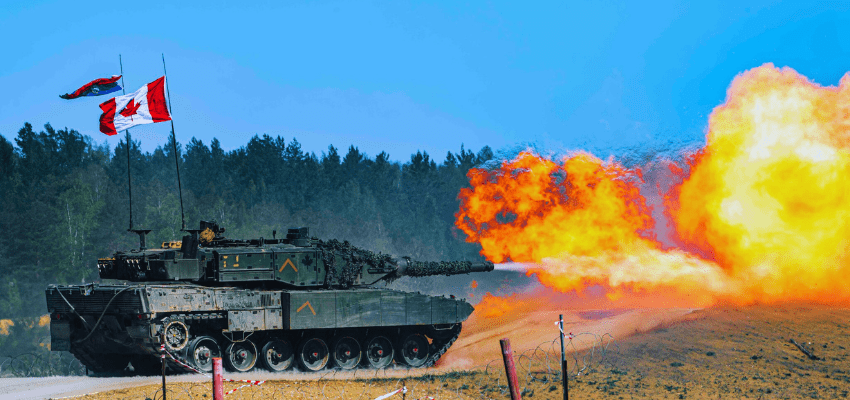This article originally appeared in the Hub. Below is an excerpt from the article.
By Richard Shimooka, August 16, 2024
Over the two years that I’ve been a contributing writer at The Hub, I have discussed a fairly wide array of issues and thinking surrounding defence. Generally, my articles identify a problem or issue and attempt to provide a solution at the end. However, I have had a growing desire to put together a series of articles about how to reform the Department of National Defence. It really catalyzed when a friend asked me, (after my long, dispiriting rant on problems that the military faced) how should a government fix these issues: or in short, what a Department of Defence 2.0 should look like. For about a year, I’ve had the idea in the back of my mind, all the while collecting my ideas and thoughts on the topic. What follows, in a series of three articles, is my take on how to structurally reform Canada’s Department of Defence so that we may restore both our security capabilities and our standing in the world.
It is abundantly evident that the Canadian Armed Forces are in crisis. There are signs of it everywhere. The foremost is the lack of military capability and capacity of the CAF compared to Canada’s close allies. Canada’ is only able to contribute token units to continental defence, not to mention to any foreign contingency.
A key part of the capability challenge involves a procurement system that often delivers equipment years late, at higher costs, and that is less effective than what is available on the market. Furthermore, the military’s capabilities and capacity are hamstrung by a dire personnel situation within the CAF. Many key positions are at half of the authorized manning. Finally, there are the issues surrounding the utilization of the military, including over-deployment and ineffective and/or counterproductive uses. These issues were observable during the recent port visit of the HMCS Margaret Brook to Cuba, where the diplomatic benefits of improving relations with Havana severely—and embarrassingly—conflicted with Ottawa’s support for Ukraine.
Considered together, these issues really should be considered symptoms of a sick patient: they are the consequences of deeper systemic problems that afflict the Department of National Defence and defence policymaking more broadly today. The failure to properly diagnose the problem before attempting to treat the symptoms is evident in many of the reform efforts over the past fifty years. For example, last year the government formed a national security council to advise the prime minister and coordinate policy between departments. Yet as reporting at the Globe and Mail discovered, the body has met sparingly, and according to individuals interviewed over the course of my research, its actual salience on the policymaking and implementation is extremely low.
This example is indicative of many of the reforms that have been implemented over the years—they focus on secondary consequences rather than addressing many of the root causes of these challenges. In many ways, this approach has steadily deteriorated DND’s capabilities, subsequently causing an intensification of the problems they are trying to solve.
But, at the end of the day, isn’t it all about the money? Many have pointed to the decades of underfunding experienced by the military as the primary cause of the mess the country finds itself in. It’s not so simple. Certainly providing more budget stability would help immensely, as National Defence currently suffers through another round of budget cuts. Yet it would be too reductive to attribute the situations only to budgets; in some respects, they also are merely a symptom of the deeper issues afflicting defence. If additionally allocated funds are not able to be properly maximized—or utilized at all—then writing bigger cheques will not by itself turn things around.
Thus any reforms require a clear understanding of these problems. Unpacking these problems will be the focus of this first article in this series. The subsequent two installments will concentrate on specific reform efforts to address these challenges.






